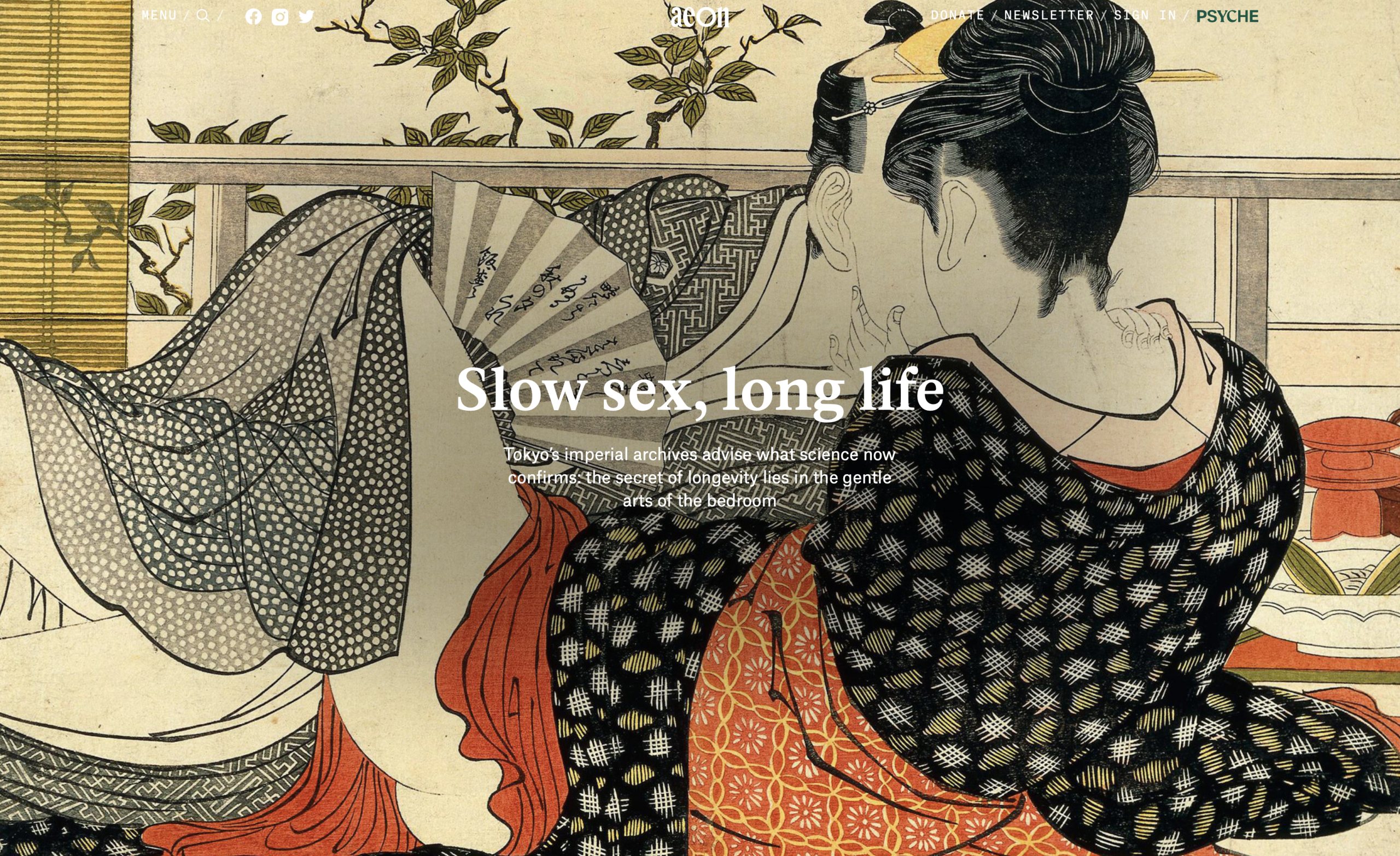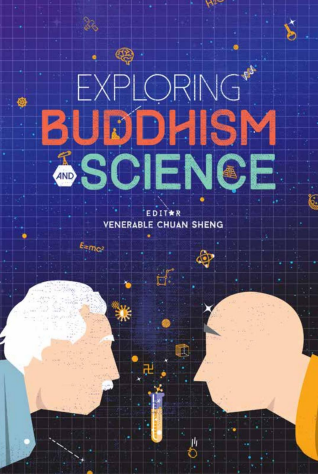Oriental Philosophy
Article on the Ishinho published in Aeon Magazine
A celebration of over 1000 years of Tamba Yasuyori’s 10th century masterly compendium of Chinese Medicine, the Ishinho, filtered through the eyes of a Japanese Buddhist, and including Scroll 28 on the sexual prescriptions for longevity. This article puts the significance of that Scroll in a modern context, including fascinating interpretations of the scientific basis on the effectiveness of the gentle Arts of the Bedroom.
Interview on SBS TV
Denis Noble and his Korean Colleague Yung Earm discuss why Genes do not make us selfish (We do!), what is No-Self and conditioned arising in Buddhist thought, the ideas of the famous 7th C Korean Monk, Won Hyo, the techniques and utility of meditation, the Oxherder parable…..and many other topics in the context of the forthcoming Documentary Film on OLD QUESTIONS, dialogues with monks and nuns in spectacular Korean Buddhist temples. English subtitles of Korean text were written by Denis Noble.
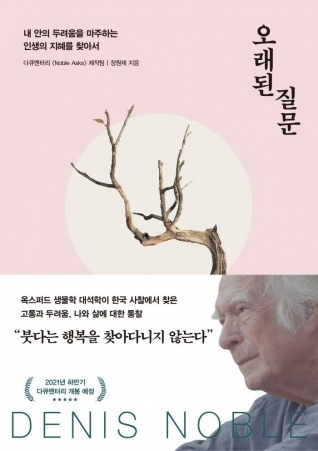
Old Questions
This 300 page book, published in Korean in 2021, relates dialogues Denis Noble had with Buddhist monks in Korea during a tour of spectacular ancient temples in the Korean countryside and mountains. Denis Noble was accompanied by Seoul National University Professor Yung E Earm, a physiological colleague for more than 40 years since his first visit to Oxford in 1979. A Film Documentary of the tour is in production. The Producer is Mr Seung-Chang Baik, the Script Writer for the Documentary and the book is Ms Wonjae Rapi Jang. An English translation of the book is in preparation.
Trailer to the Documentary Film
A 4 minute trailer to the film, which will be released sometime in 2024. The Trailer shows beautiful scenes from the various temples visited, and highlights of discussions with the monks. The ending is Denis Noble’s central mission to the world, “Genes do not make us selfish. WE DO!”
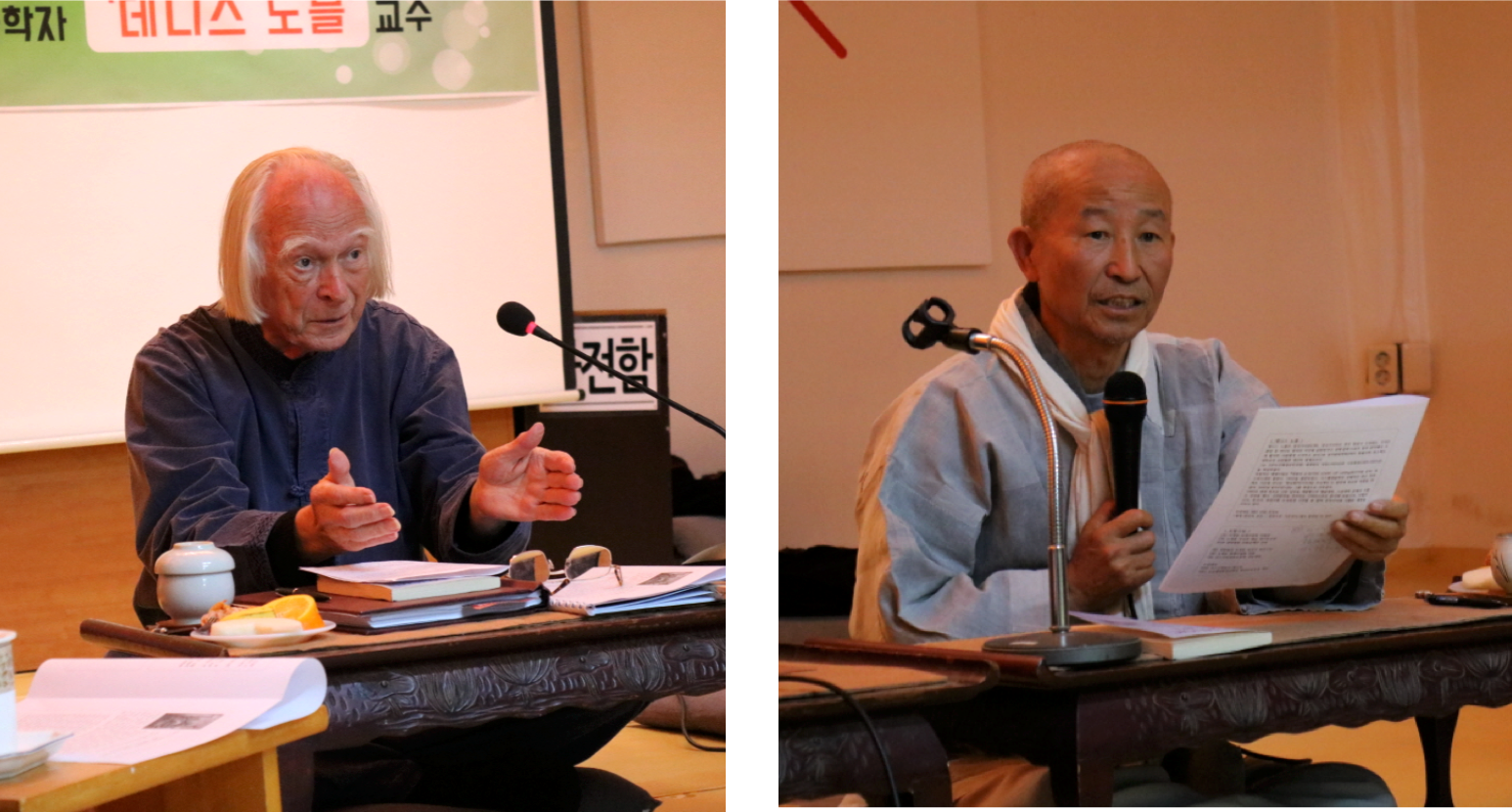
Denis Noble and Do Bub at the talk to people at Sil-Sang temple in Korea
Click button below for Interview with Denis Noble
Exploring Buddhism and Science
A collection of essays on Buddhism and Science, freely available as a download on
https://issuu.com/awakenpublishing/docs/exploring_buddhism___science
or by clicking the book image. The Book was edited by the Venerable Chuan Sheng at the Buddhist College of Singapore.
The chapter by Denis Noble is entitled A Systems Biological interpretation of the Concept of No-Self (anatman). and can be accessed by clicking on the title. The chapter includes the analysis of the Commentary on the Diamond Sutra by the 7th Century Korean Monk, Won Hyo, showing the similarity of his thought to that of relativistic multi-scale systems biology. This analysis formed part of the dialogue with the monk Do Bub Su-nim at the temple SilSangSa during the filming of the Korean Documentary.
Buddhism and Science Symposium
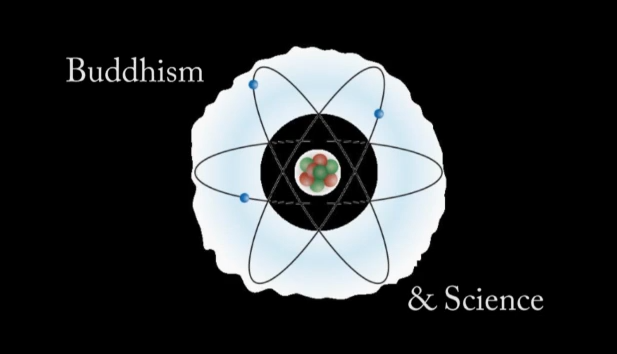
Recorded in 2010 by Voices from Oxford
This seminal series of videos was recorded during a 2-day colloquium on Buddhism and Science at Oxford University involving leading scientists, philosophers, Buddhist scholars and Buddhist practitioners in deep debate on the perceived convergence of modern science (relativity theory, quantum mechanics, systems biology, cognitive psychology, clinical science) with some of the traditional ideas of Buddhism (anti-metaphysical stance, interdependence, emptiness, no-self). The colloquium was organised by Vesna Wallace (Numata Professor of Buddhist Studies at Oxford), Denis Noble (Emeritus Professor of Physiology) and Alan Wallace (Director of the Santa Barbara Institute for Consciousness Studies). In addition to the introduction, there are 11 30-minute recordings. The debates are lively and critical.
Introduction
Denis Noble, Balliol College, Oxford
Denis Noble introduces the Symposium by explaining how he became involved in Buddhism’s relationship with science, why he used the Oxherder Parable in his book The Music of Life (OUP 2006), to explain the relations between Systems Biology and the No-Self concept. He then introduces the purpose of the Symposium, held in the Sherrington Room of the Department of Physiology, Anatomy & Genetics at Oxford University.
Session 1: Is there a Buddhist Science?
Professor Vesna Wallace, Numata Professor of Buddhist Studies
Vesna Wallace was the Numata Professor of Buddhist Studies at Balliol College, Oxford, and is now Professor and Director of Graduate Studies at the University of California, Santa Barbara. Her work concerns philological and textual study, and philosophical, historical, critical, and comparative analyses of the Buddhist traditions of South Asia, Tibet,and Mongolia. Her languages include Serbo-Croatian, Sanskrit, Pali, Hindi, Modern Mongolian and Classical Mongolian. She has authored and translated four books related to Indian Buddhism, three of which pertain to the Kalachakra tantric tradition in India.
Session 2: Relativity and Emptiness
Professor Laurent Nottale, Paris-Meudon Observatory
Laurent Nottale is a French atrophysicist and relativity theorist. He is the author of the theory of Scale Relativity, which is based on the idea of fractal space-time and aims to unify quantum mechanics and relativity theory. His early work was on gravitational lensing. His book on this theory is published as Scale Relativity And Fractal Space-Time: A New Approach to Unifying Relativity and Quantum Mechanics. 2011 1st ed. World Scientific Publishing Company. He authored an influential book La Relativité dans tous ses états : du mouvements aux changements d’échelle, Éditions Hachette, 1998. He has also written on the subject of this lecture to the Symposium.
Session 3: Systems Biology and Relativity
Professor Charles Auffray, European Institute of Systems Biology
Charles Auffray founded the European Institute of Systems Biology in Lyon, France. He has worked with Laurent Nottale on applying the ideas of scale relativity to Systems Biology.
Session 4: Systems Biology Concepts of the Self
Professor Denis Noble
Systems Biology is the study of the processes as distinct from the components of living organisms. The Self is then naturally a process rather than an object. It does not exist in itself apart from the social relationships and is therefore empty in the Buddhist sense.
Session 5: Towards a Three-dimensional Science of the Mind
Alan Wallace, Santa Barbara Institute for Consciousness Studies
Session 6: Mindfulness in Clinical Psychology
Professor Mark Williams
Mark Williams presents Clinical Evidence for the effectiveness of mindfulness meditation in treating mental disorders
Session 7: Constructing Reality: Cognitivism and Buddhist Psychology
John Peacock, Mindfulness Centre, Oxford
Session 8: Interdependence: from Classical Causality to Quantum Entanglement
Professor Michel Bitbol, Ecole Polytechnique, Paris
Session 9: General Discussion
Session 10: Reactions
Professor Peter Hacker, St John’s College, Oxford
Peter Hacker is Emeritus Professor of Philosophy and is a renowned expert on the philosophy of Wittgenstein. With the Neuroscientist Max Bennett he is author of The Philosophical Foundations of Neuroscience (Blackwells-Wiley, 2003, 2021) with a Foreword by Denis Noble. In his talk he strongly questions reliance on the philosophy of William James. The discussion following his talk became very lively indeed since James is often taken as a basis for some scientific approaches to the psychological aspects of Buddhism.
Session 11: Closing Discussion
Chaired by Denis Noble
Conversation with Stephen Batchelor
Interviewed by Denis Noble
This conversation was not part of the Oxford Symposium. It was recorded later the same year at Stephen Batchelor’s home in France, near St Emilion. Stephen Batchelor was a Buddhist Monk for many years, first in the Tibetan Tradition, then in the Korean Tradition. After de-robing he wrote a seminal book The Awakening of the West. A later book is titled Confessions of a Buddhist Atheist. He and his wife now teach meditation methods worldwide. Denis Noble discusses with him whether Buddhism could be returned to its founder’s tradition of a non-metaphysical approach to life. Many of the issues discussed in the Symposium are covered in the conversation.

